What’s new at UC Berkeley this semester? Here’s a glimpse.
Some of the newness comes in pairs: two undergrad majors, two 100th birthdays and a major scholarship for two
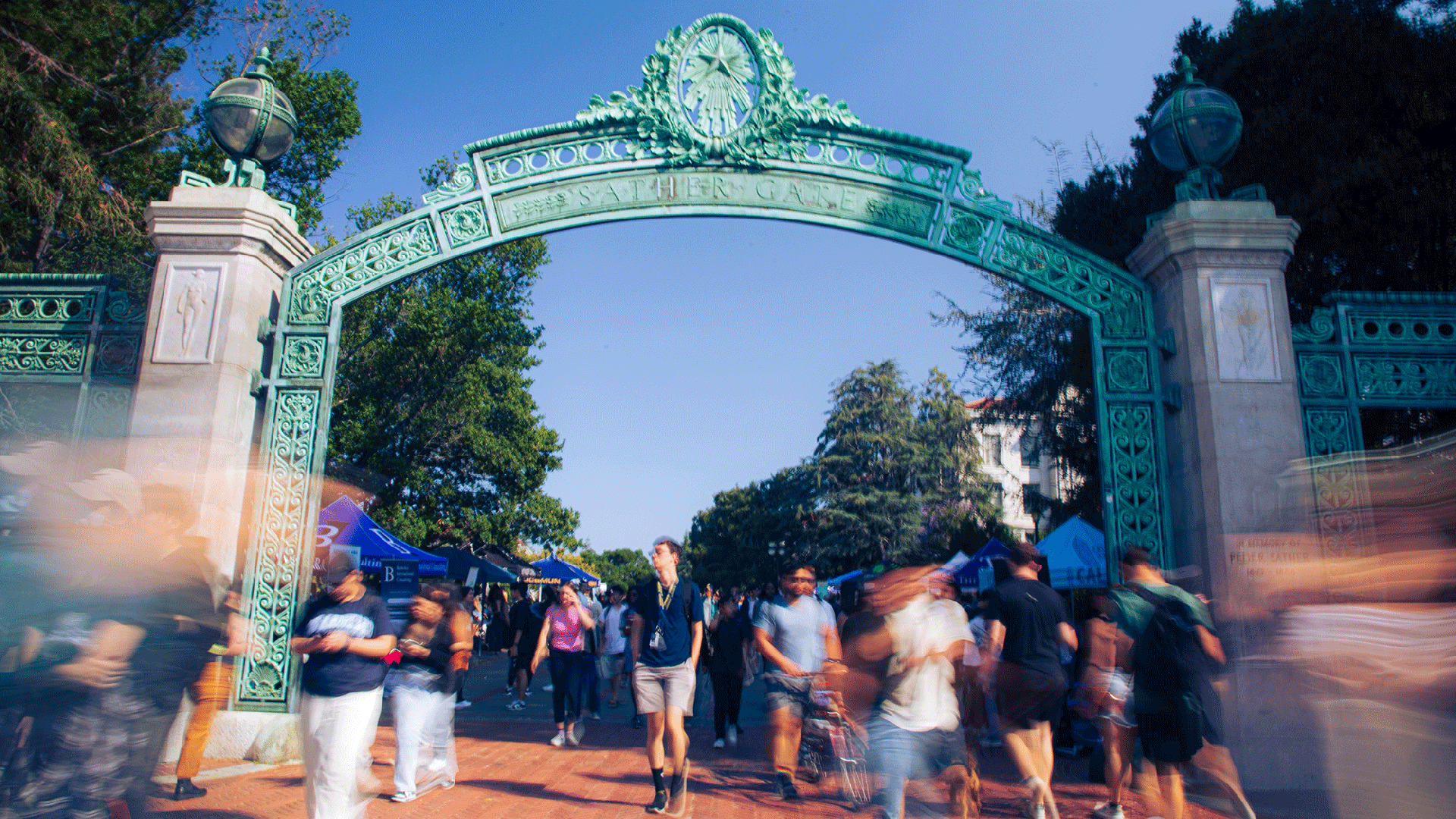
Brandon Sanchez/UC Berkeley
August 23, 2023
An undergraduate-only literary journal, scholarships for sub-Saharan refugees, the debut of two undergraduate majors, centennials for California Memorial Stadium and the Department of Art Practice, a wider audience for Berkeley’s African language courses, and automated devices that dispense free games and mini manicures are among what’s new at UC Berkeley as fall semester 2023 gets underway.
Instruction begins today for most Berkeley students, who also are discovering several major campus construction projects in the works, from new housing for transfer and graduate students to a hub for engineering students to a home for the College of Computing, Data Science, and Society.
While the six-day Golden Bear Orientation, Move-In Days, New Student Convocation, Caltopia and the first-ever DormDash on Lower Sproul Plaza are over, tomorrow is Calapalooza, a bi-annual fair on Upper Sproul Plaza where students can learn about the more than 1,200 registered student organizations, 60 sororities and fraternities and student government groups at Berkeley.
Undergraduates looking for research, internship, entrepreneurship, public service and study abroad opportunities can explore a newly-launched database — the Discovery Opportunities Database — that’s part of Berkeley Discovery, an initiative to help all students experience journeys of discovery during their Berkeley years.
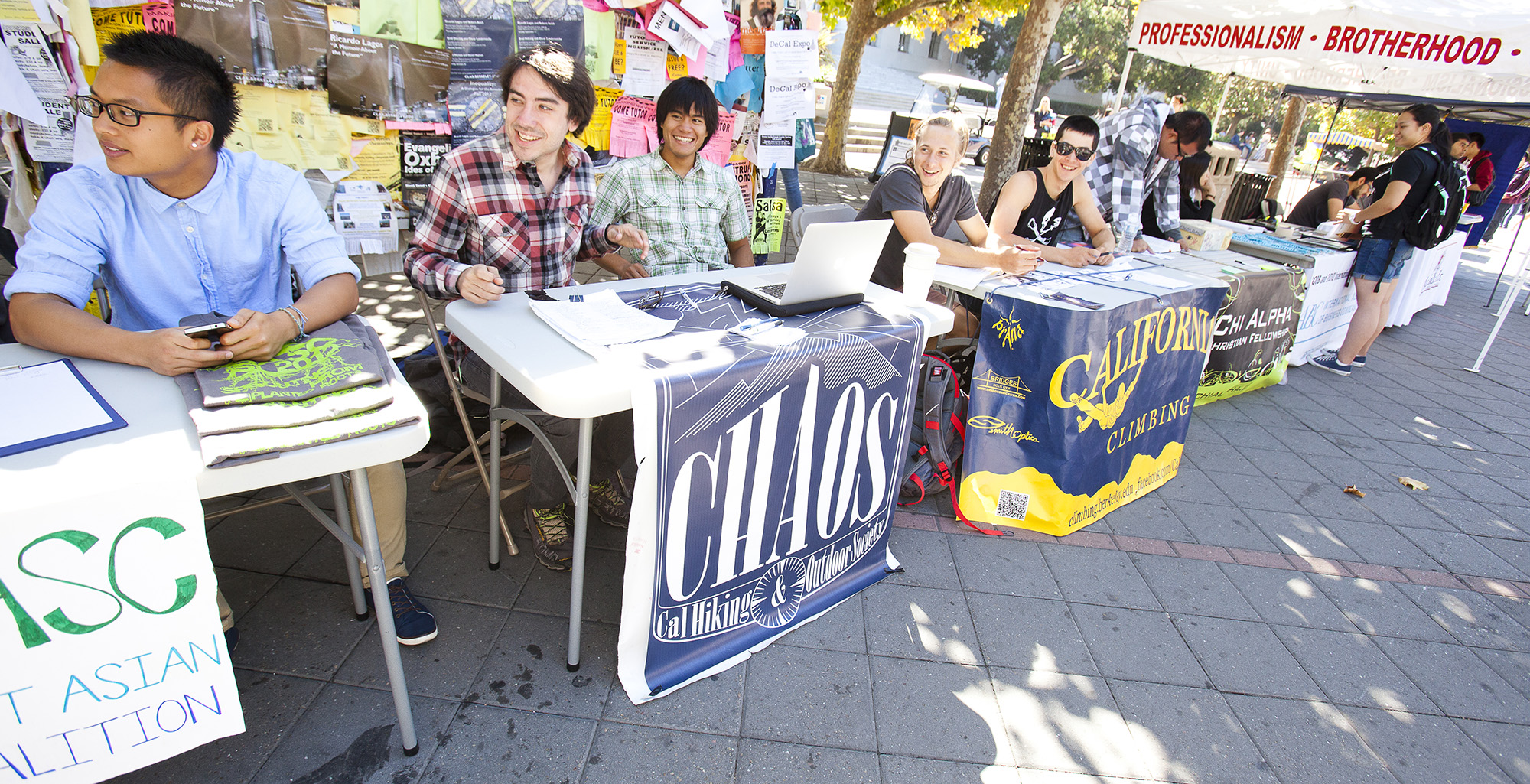
The first Robinson International Scholarship
Among much good news this fall is a financial aid increase of $500 for low-income students, the third such boost in a row, following $200 increases the past two school years. The Financial Aid and Scholarships Office also reports that federal Pell Grants have increased $500 in value, to nearly $7,400 for the 2023 fiscal year, and support more than 9,000 Berkeley students.
Also on the rise is successful fundraising for scholarships. One result is a new scholarship for refugees from sub-Saharan Africa, where 44 million people have been displaced. It’s the gift of Berkeley alumna Stephanie Robinson and her husband, UC Regent and alumnus Mark Robinson, and a subprogram of the Regents’ and Chancellor’s Scholarship, which, like the new scholarship, covers up to eight semesters for incoming freshmen and a maximum of four for incoming transfer students. Each school year, two high-achieving student refugees will receive the same benefit through the Robinson International Scholarship, but also help securing their visas, travel expense coverage and computer support.
Riak Mayar, one of this year’s awardees, fled in 2012 from South Sudan when civil war erupted and displaced thousands of people. He was rescued with the help of a U.N. peacekeeping troop and entered Kenya’s Kakuma refugee camp. Last year, the Red Cross brought his two brothers, ages 11 and 13, to him — they’d been in displaced persons camps in South Sudan — and they remain at Kakuma.
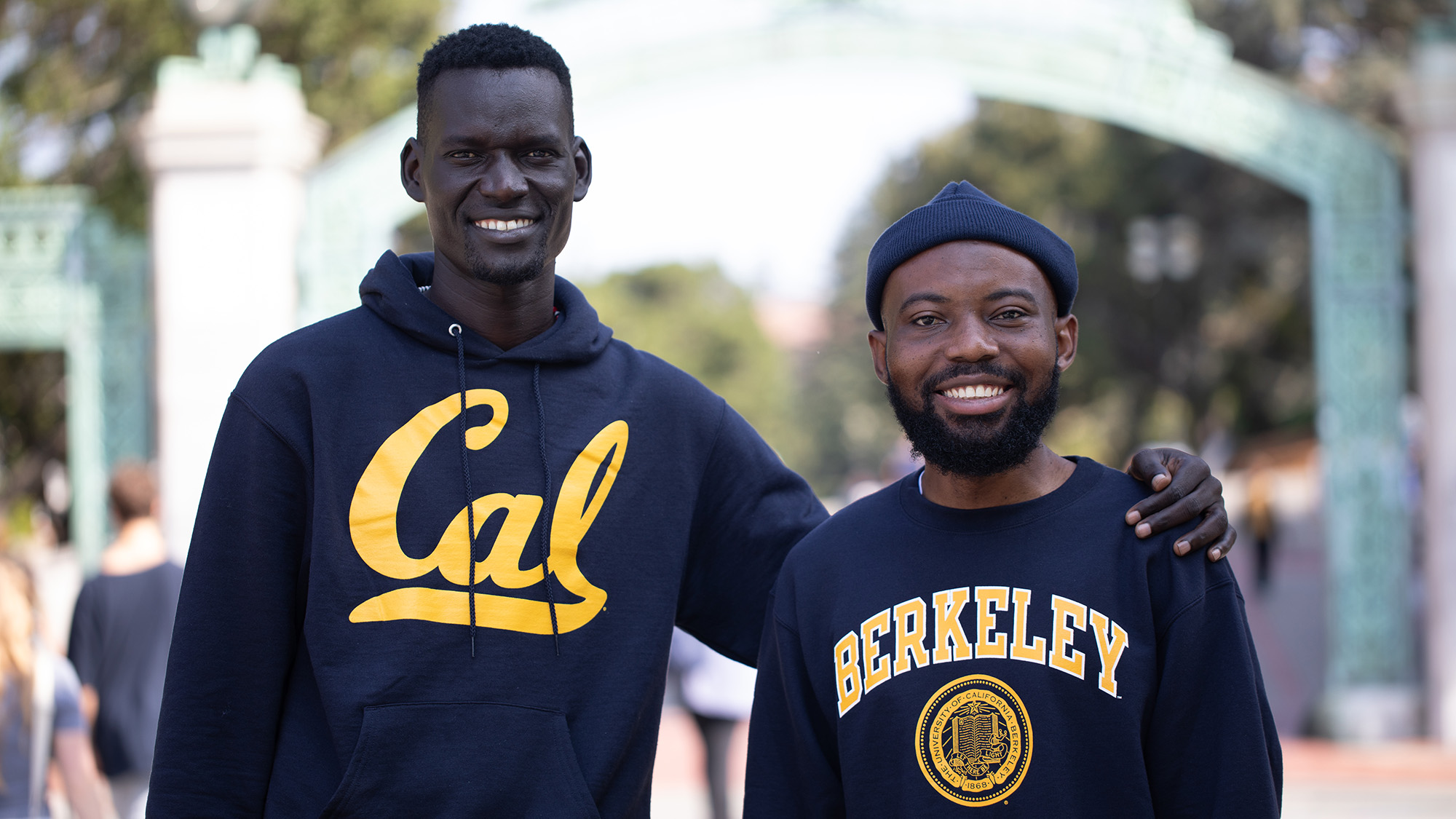
Brandon Sanchez-Mejia/UC Berkeley
Ruremesha Hussein, who’s called Alimas, fled Bujumbura, Burundi, with his mother and younger siblings at age 8 in 2007 “because of fear for our lives,” he said. Hussein’s father had run away earlier after refusing to join the rebel group, which burned the family’s house down. After a perilous journey, they all made it to South Africa, where Hussein lived until his departure for Berkeley.
Hussein said the scholarship will help him “finish my studies at UC Berkeley and pursue my dreams in the corporate world and be able to support my four young siblings, community, and especially my mother back home, who worked Monday to Sunday so hard to support me successfully to finish high school.”
Being chosen for a Robinson International Scholarship, said Mayar, who will study computer science and electrical engineering, “is a way to support my resilience and aspirations, offering me a path to personal growth, empowerment and a brighter future, despite the hardships I have endured.”
Cruz Grimaldo, associate vice chancellor and director of financial aid and scholarships, expressed gratitude “for the collective support from the entire higher education community, federal, state and UC advocates, donors, faculty and staff working in coordination to make Berkeley more accessible and affordable for our talented low-income students.”
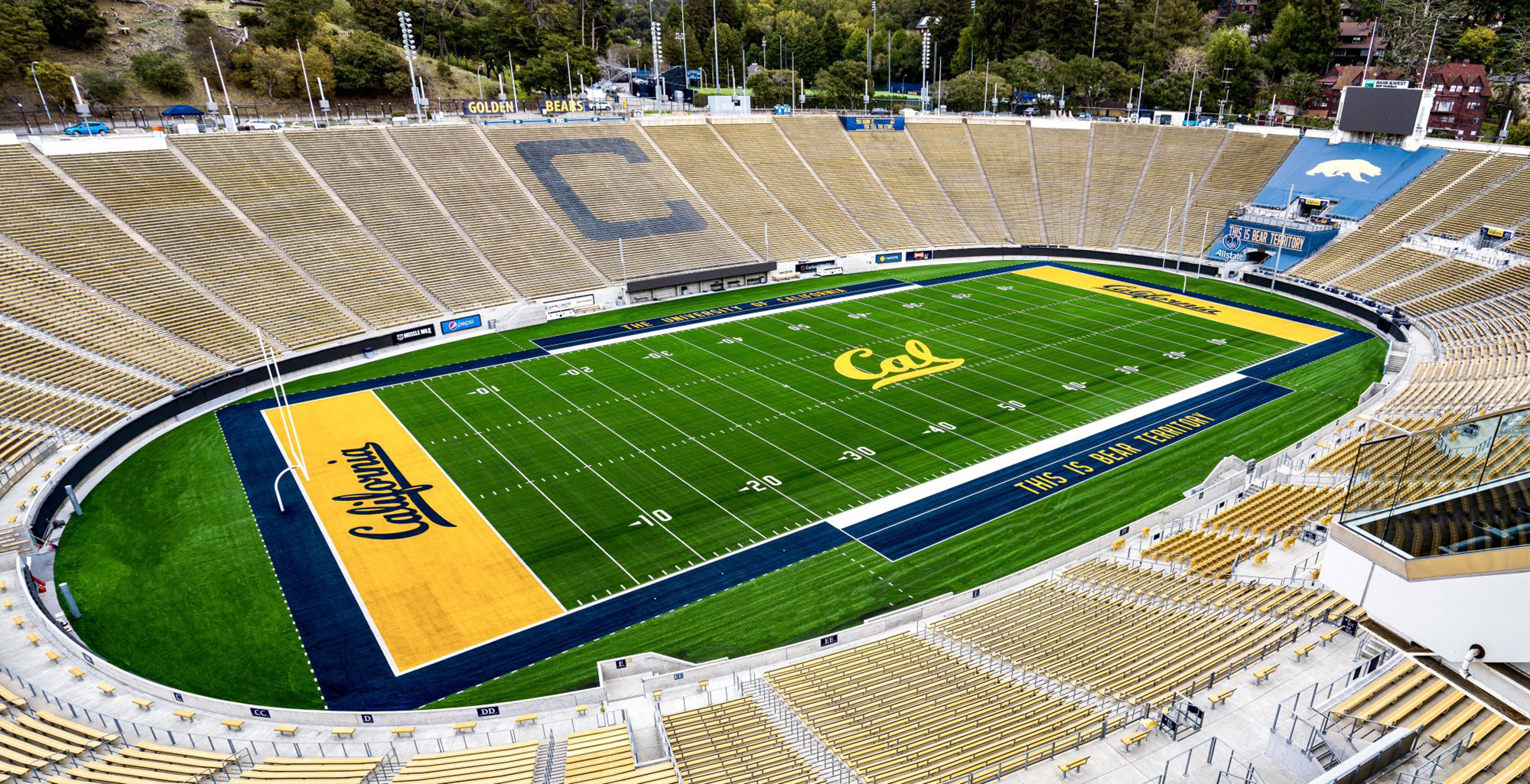
Courtesy of Cal Athletics
Major milestones
As a memorial to Californians who fought and died in World War I, California Memorial Stadium opened in the fall 100 years ago, in time for the 1923 Big Game. Designed by world-renowned architect John Galen Howard and co-designers G.F. Buckingham and E.E. Carpenter, the neoclassical structure, added in 2006 to the National Register of Historic Places, is considered one of college football’s most scenic venues.
Each spring, it hosts the popular all-campus commencement ceremony. Its storied life also includes President Harry S. Truman giving the keynote address at commencement in 1948, President John F. Kennedy speaking on Charter Day in 1962, and Paul McCartney performing there twice in 1990 as part of his world tour.
In 2010, the stadium closed for a 21-month renovation, and when it reopened in 2012, it was rededicated to all Californians who have given their lives in service to the nation.
A special Cal Athletics webpage about the stadium’s 100th launched this week, along with a request that fans share their memories about the stadium. The anniversary will be recognized at home games this season with giveaways for fans, and a Sept. 9 halftime drone light show will honor UC and stadium history.
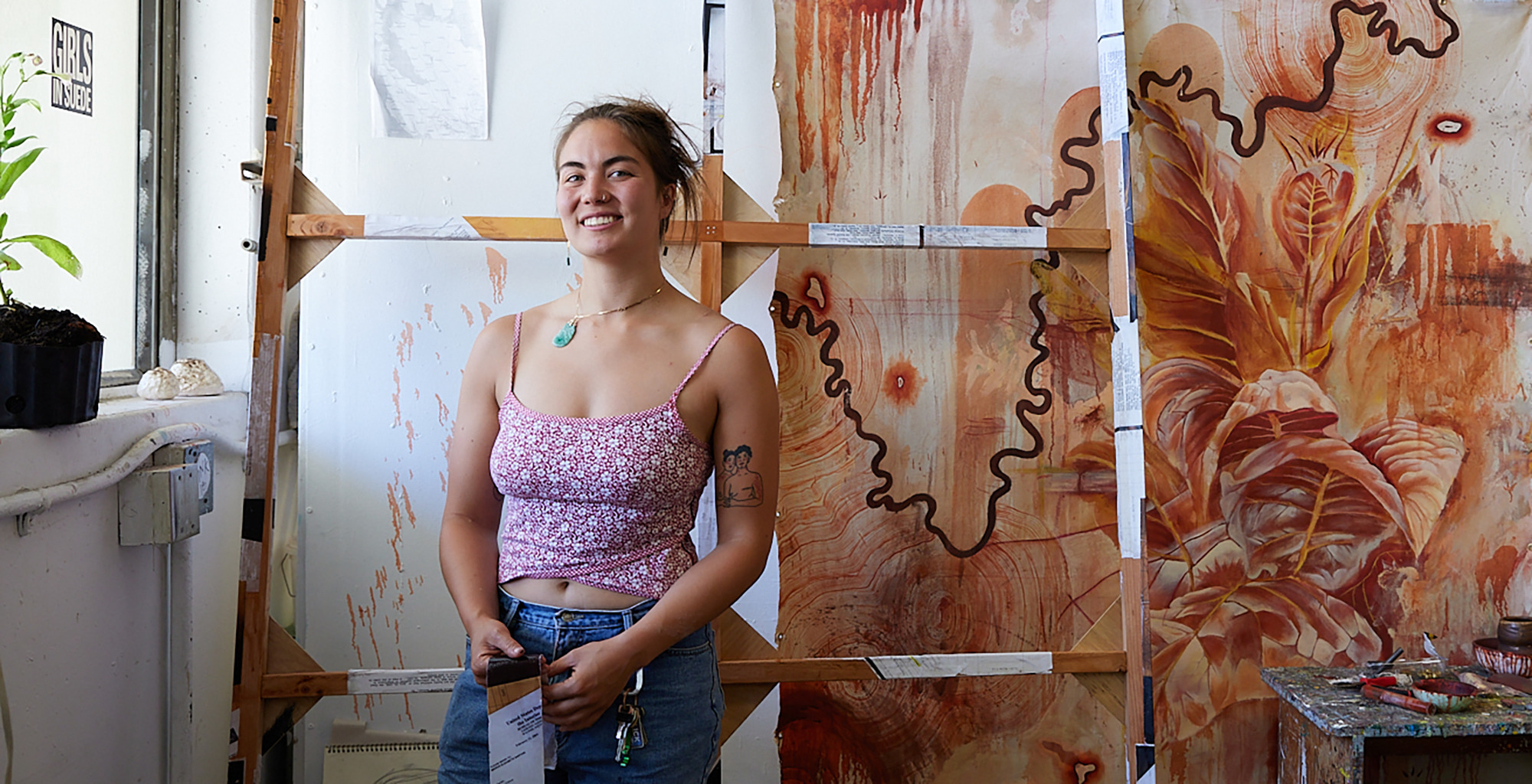
Jen Siska for UC Berkeley
The Department of Art Practice, established in 1923, also celebrates its 100th this year. Initially, the Academic Senate was reluctant to approve studio art as a formal academic program, as only a few universities at the time had created one.
But the program thrived, and for the past five years, art practice has been one of the fastest-growing majors at Berkeley. The number of art practice majors today is almost double what it was five years ago, and as a share of all campus majors it has grown an average of 12% annually, according to the Office of Planning and Analysis (OPA).
The department is part of the Division of Arts and Humanities, which has seven new faculty members this fall in the fields of music; art practice; film and media; and theater, dance and performance studies. These disciplines have experienced significant growth, OPA reports.
Also of note: It’s the 20th anniversary of Disability Studies, an academic minor being honored with events including a disability rights exhibit at Doe Library and a screening of Crip Camp: A Disability Revolution. The film is the 2023-24 selection for On the Same Page, a program in which all new students watch or read the same featured work of art before arriving at Berkeley to take part in related courses, events and activities.
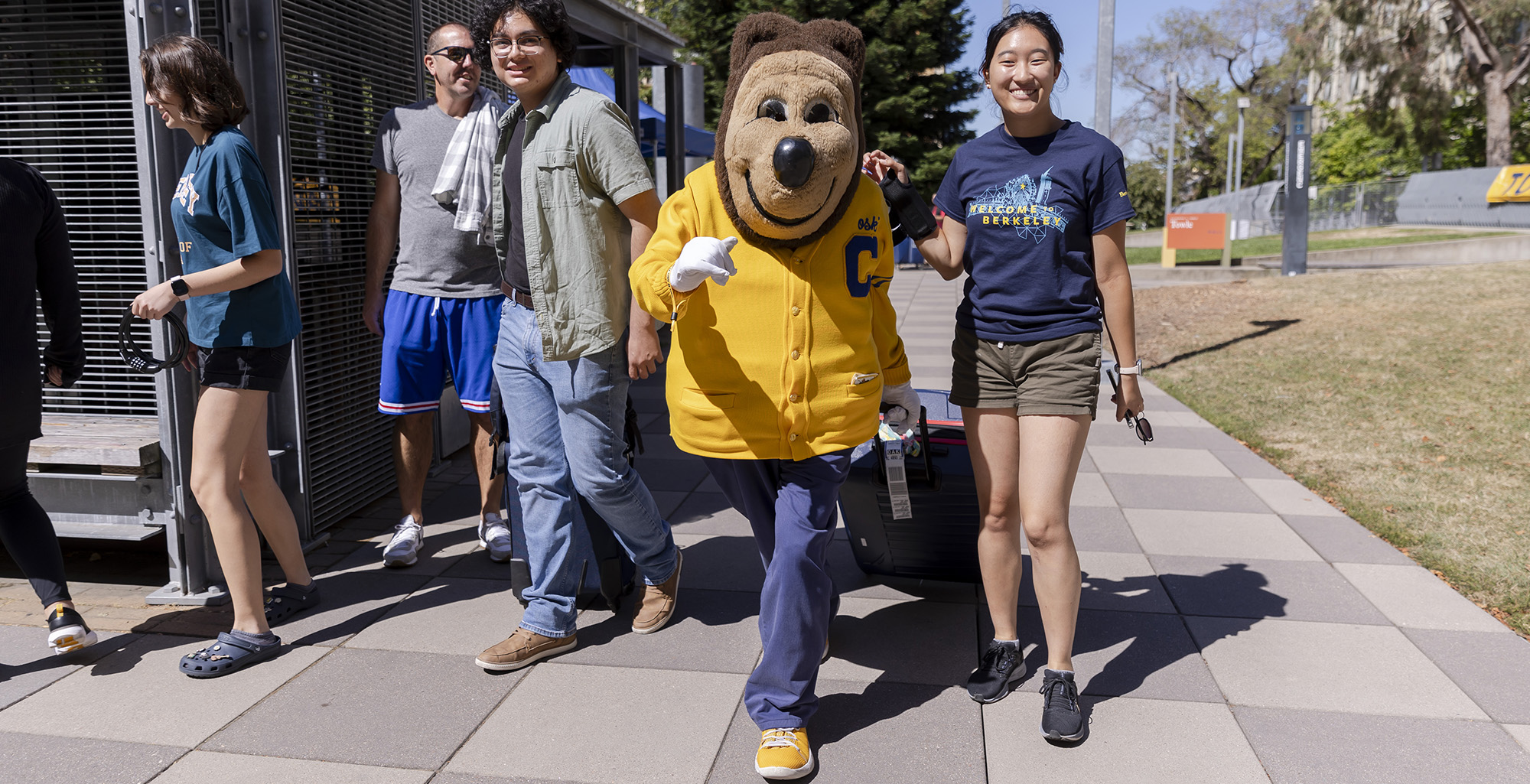
New undergraduate majors
Two new academic majors — East Asian humanities and educational sciences — have been approved and will join the approximately 115 active undergraduate majors currently offered at Berkeley.
The East Asian humanities major within the Department of East Asian Languages and Cultures breaks new ground by allowing students to roam across multiple East Asian cultures — Chinese, Japanese, Korean, Tibetan and Mongolian — through many disciplines, including literary, cultural, visual and sound studies, religion, philosophy, film and media studies, disability studies and environmental humanities.
There also are no language prerequisites or requirements, which Associate Professor Robert Ashmore, department chair, said “relates to issues of equity and access. For transfer students, or students more generally who may not have had the option of studying East Asian languages before arriving at Berkeley, this major will open doors.”
Berkeley has been teaching Asian languages since 1872, making it one of the first universities in the country to do so.
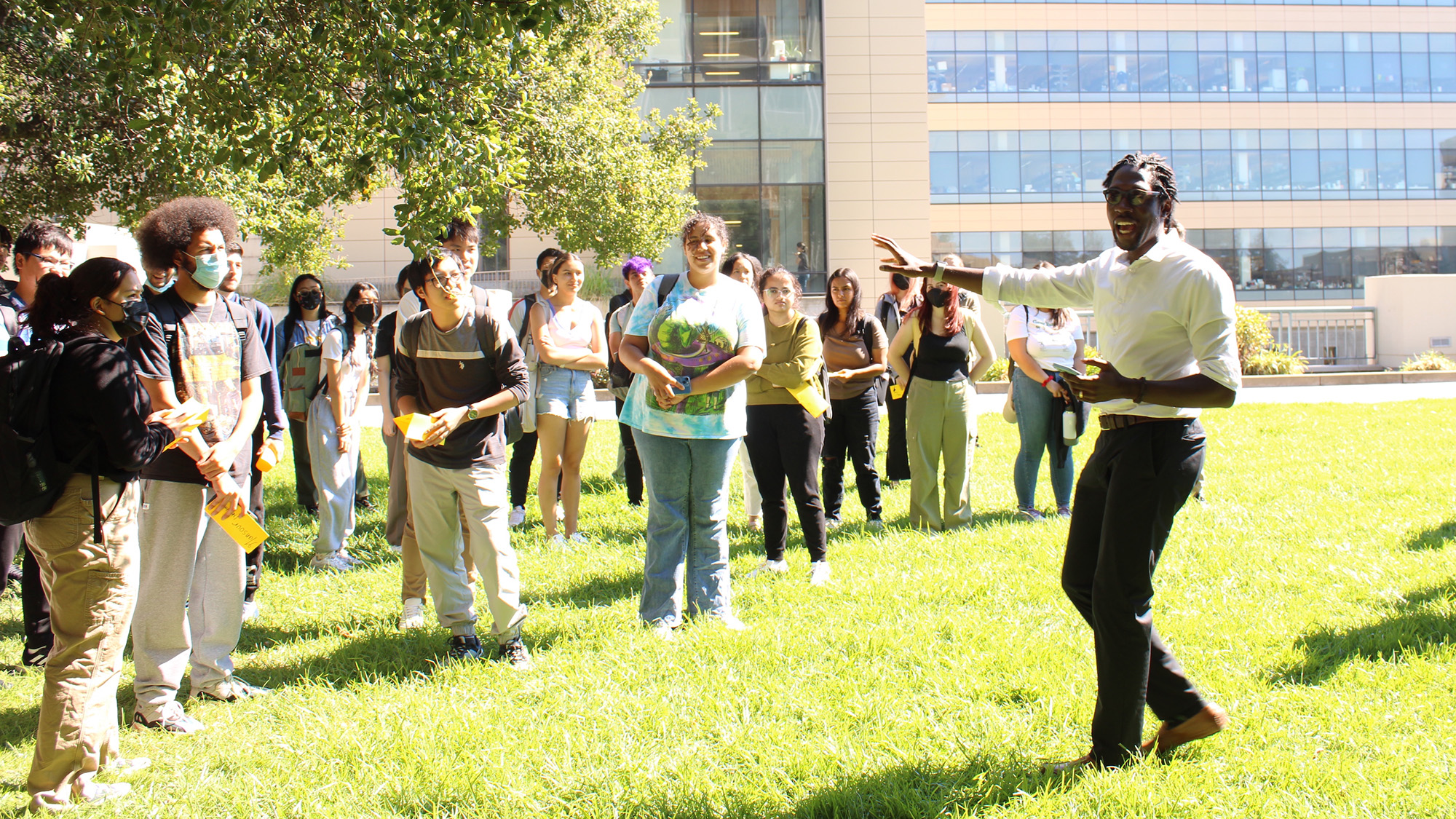
Dara Tom/UC Berkeley
At the Berkeley School of Education, a new educational sciences major “will prepare students to become educational researchers, curriculum and learning specialists, and policy analysts, as well as position them for future careers as teachers and educational leaders — all committed to a shared mission of fostering human thriving through learning,” said Berkeley Education Professor Glynda Hull.
Hull, who led the proposal for the major that students can declare in fall 2024, said educational sciences courses will focus on promoting equity and social transformation from pre-kindergarten through post-secondary education, as well as advance equity, inclusion, diversity and belonging for undergraduate students.
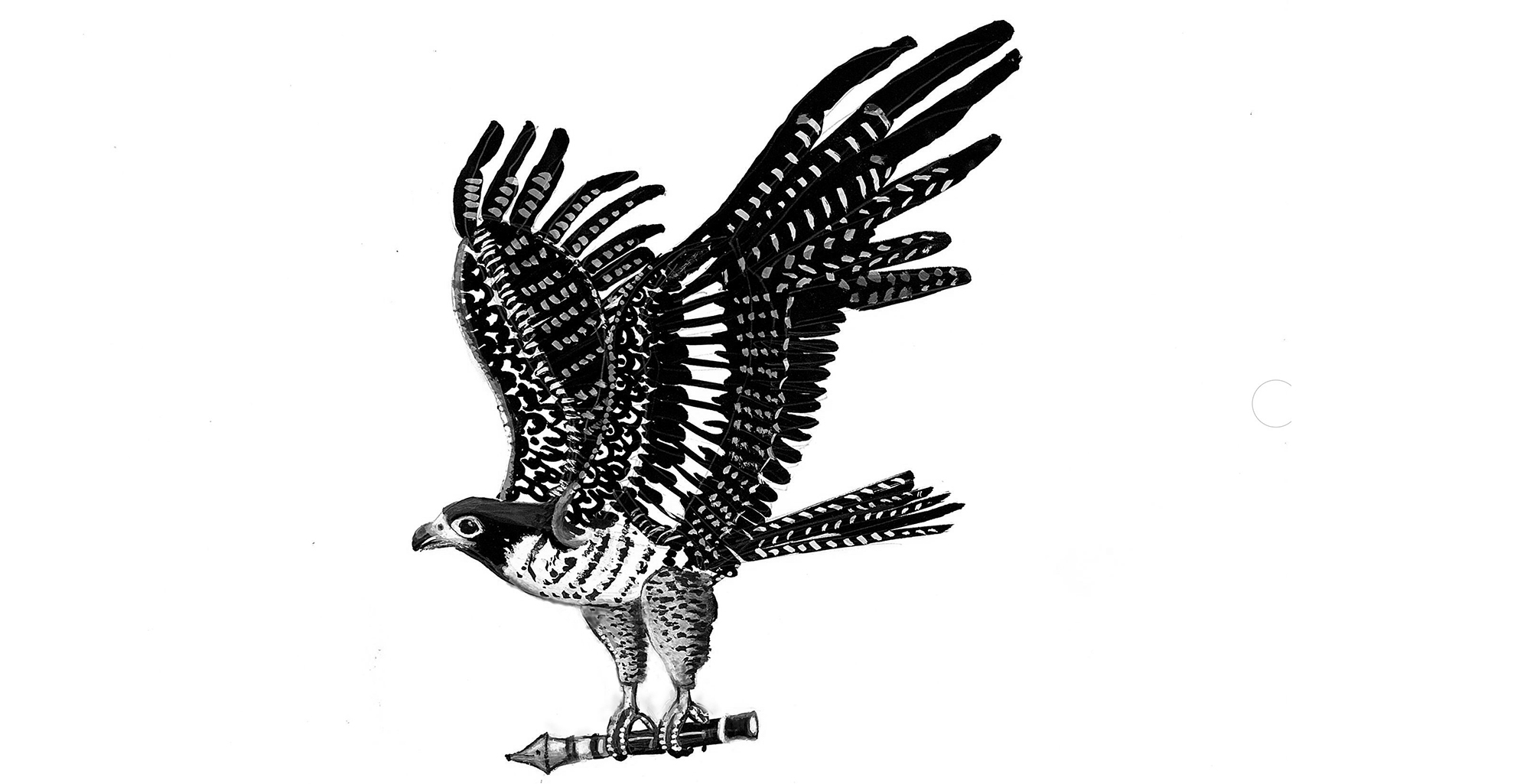
Catherine Nolin
Peregrine, a new student literary journal
A new undergraduate-only literary journal is being launched this fall by UC Berkeley College Writing Programs lecturers Matthew Parker and Joe De Quattro. The first issue is targeted for spring 2024, with submissions of fiction, poetry, non-fiction and one-act plays accepted between Sept. 1 and Dec. 1. Students should email work to [email protected], specifying the genre in the subject line.
De Quattro said he and Parker noticed an absence among campus publications of a literary journal just for undergrads and won the support of the writing programs to get Peregrine off the ground. The first issue will be online, and a print version eventually will be added.
The journal’s name is a nod to the campus’s famous peregrine falcons, and De Quattro’s sister, Catherine Nolin, created the logo. Submissions will be peer-reviewed in “a rejection/acceptance process,” said De Quattro.
He added that undergrads from all academic disciplines are invited to submit their work and that, if it’s published, “they may feel it’s a step toward more considerable publication in the future,” such as in top literary journals and magazines.
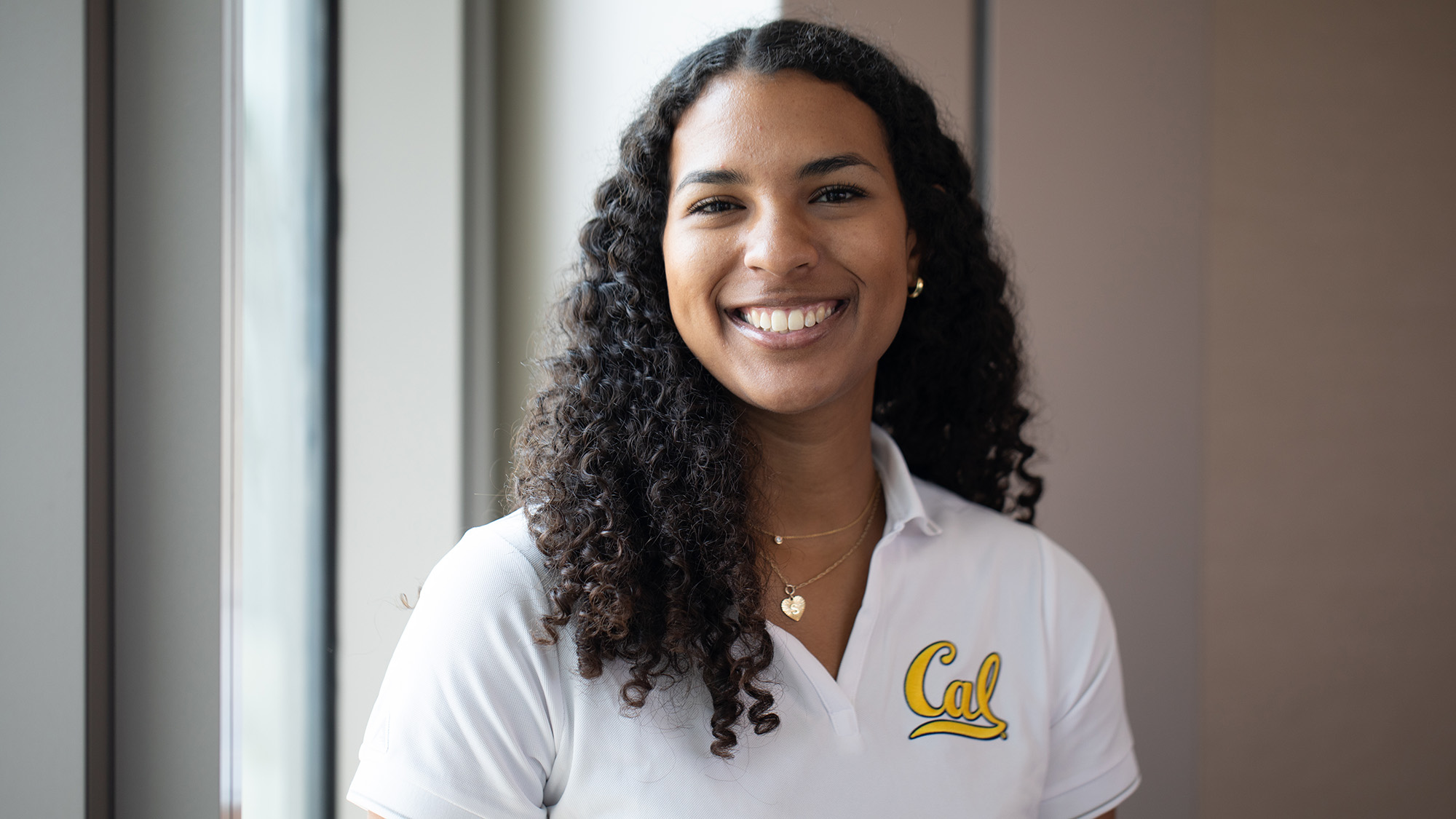
Brandon Sanchez-Mejia/UC Berkeley
Berkeley African language courses go online UC-wide
Berkeley’s unique expertise in African languages and its scholarship in the Department of African American Studies — along with state-of-the-art resources at the Berkeley Language Center and a supportive Center for African Studies — is making it possible this fall for students at any UC campus to learn Swahili, Igbo and Amharic, which are being offered both in person at Berkeley and online.
David Kyeu Sr., a lecturer who has taught Swahili at Berkeley since 2013, has partnered with other UC campuses and the UC Office of the President to provide these courses through an online platform made possible by the Berkeley Language Center.
Swahili is a Bantu language widely used in East Africa; Igbo is the official language of Nigeria; and Amharic is the largest, most widely spoken language in Ethiopia. Kyeu said Berkeley’s courses are designed to help learners not only with speaking, but with writing, reading and listening to these languages.
The new courses are the online versions of courses that already exist in the department.
While students often take African language courses to fulfill a foreign language requirement or to prepare to travel in Africa, Kyeu said there are other benefits to learning them.
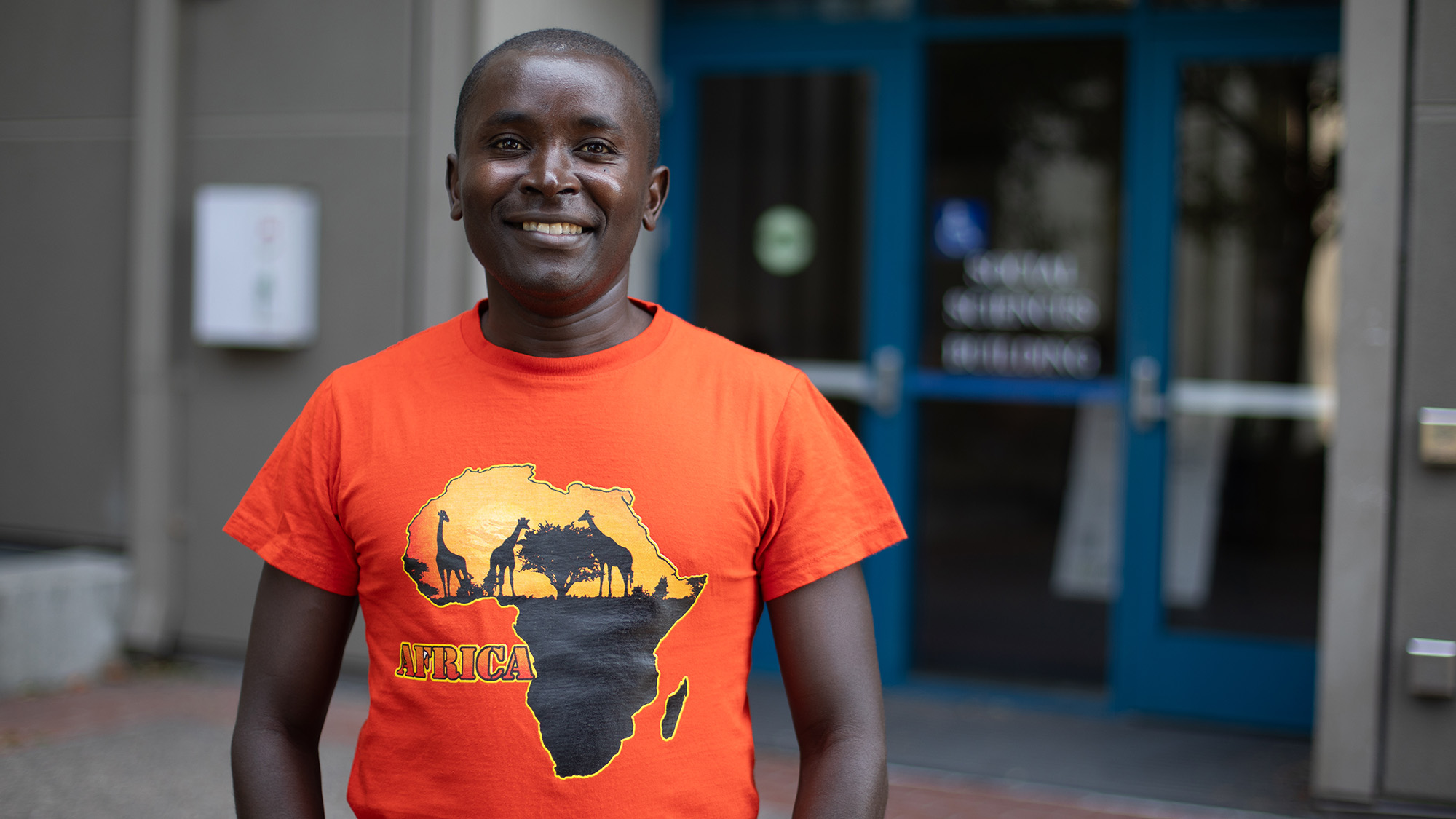
Brandon Sanchez-Mejia/UC Berkeley
“If students want to be able to access certain literatures, understand African festivities, like Kwanzaa, or even analyze the cultural implications in films and musicals, like ‘The Lion King,’ learning to read and speak African languages helps us do all of that,” he said. “These languages give us access to those African cultures and geopolitical perspectives that over 1 billion inhabitants of Africa have. … And that is critical for students’ mental faculties.”
Kyeu added that Berkeley is a leader in these languages since it has highly trained native speakers within the department and Black faculty members from a variety of academic backgrounds who are “united by a relentless commitment to pushing the boundaries of knowledge to seek new ones that exist in the African languages we teach.”
He said Berkeley’s undergraduate degree program in African American studies “exposes students to the social, political and cultural history of African-descended people,” and that much of that history is found in Swahili, Igbo and Amharic.
The department’s Ph.D. program in African Diaspora studies, added Kyeu, “trains students to theorize the African diaspora and racialized Blackness across history, social institutions, culture and geographical location, which are embedded within the new online language courses that we offer this fall.”
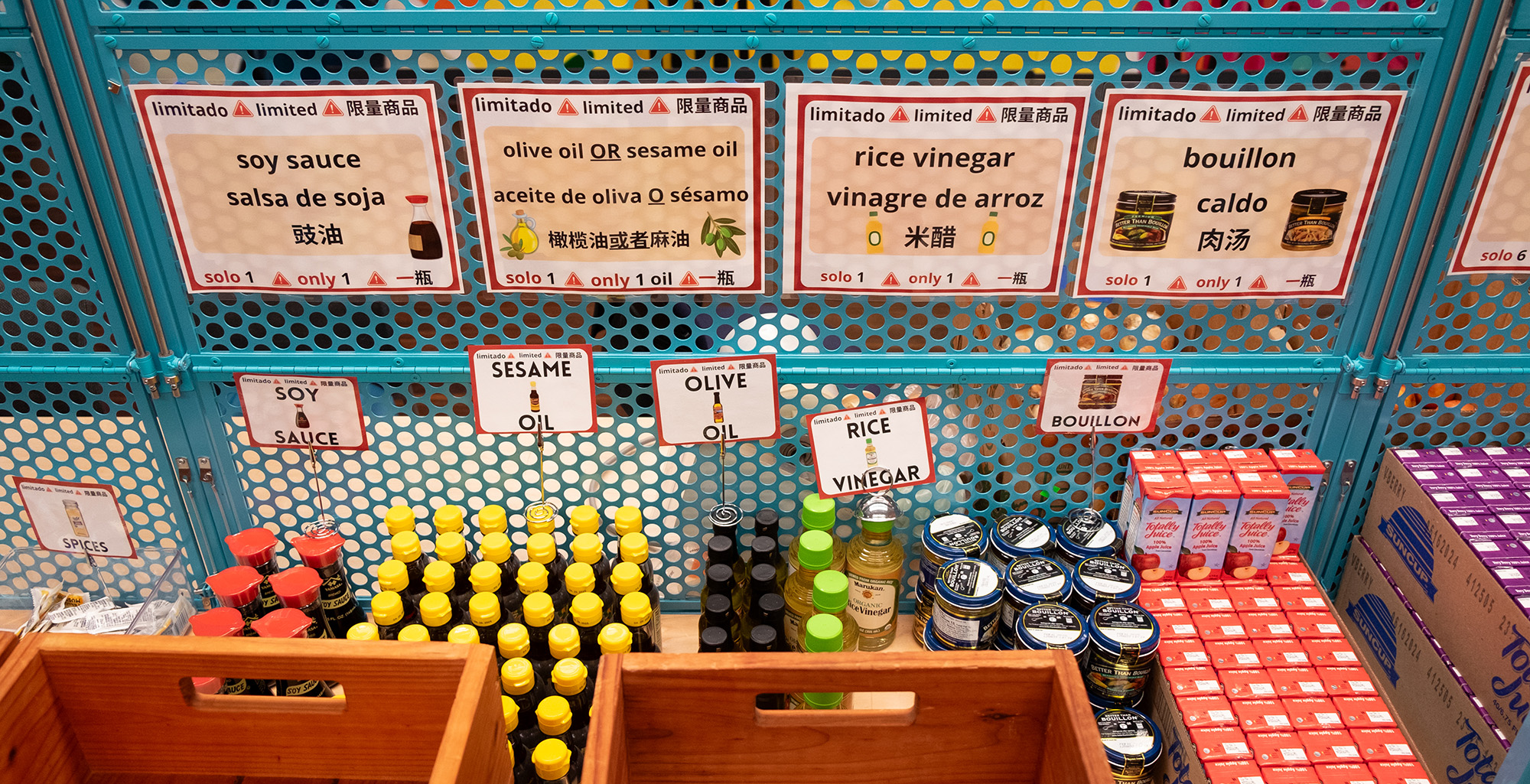
Sofia Liashcheva/UC Berkeley
More support for hungry students, student parents, student veterans
The campus’s busy Basic Needs Center will hold its biggest annual event — the Basic Needs Center Block Party — next Tuesday, Aug. 29, from noon to 4 p.m. on Lower Sproul Plaza. Students can learn about the support the center provides with food, housing, finances, health care, mental wellness, transportation, hygiene, sleep and emergency care while also enjoying free food, games and prizes.
Kiyoko Thomas, center director, said fall is the busiest time at the Basic Needs Center, as the center’s team helps students enroll in the CalFresh program, a federally-funded food assistance program that issues a debit card to eligible students for up to $281 a month for groceries. Last year, through outreach efforts and application support, more than 4,200 Berkeley students applied for CalFresh benefits.
Several CalFresh ambassadors, a new CalFresh coordinator and a new associate director have been hired to accomplish this goal. Given the recent changes to CalFresh eligibility and the application portal, the center also will hold additional CalFresh hours to support students.
The center is planning a more visible and accessible welcome center in the student union; it will open in the spring. Being configured in the same space are a kitchen and food recovery hub, where recovered food from campus dining halls can be repackaged for distribution.
The center’s food pantry continues to be an emergency relief program to meet the short-term needs of students, staff, visiting scholars, researchers and postdoctoral fellows. It serves thousands of unique visitors monthly.
“Students often don’t realize they are in a true crisis when it comes to food, housing or other basic needs,” said Thomas. “So we want them to know that they have tons of support at our center they can tap into, resources that can change their entire college experience for the better.”
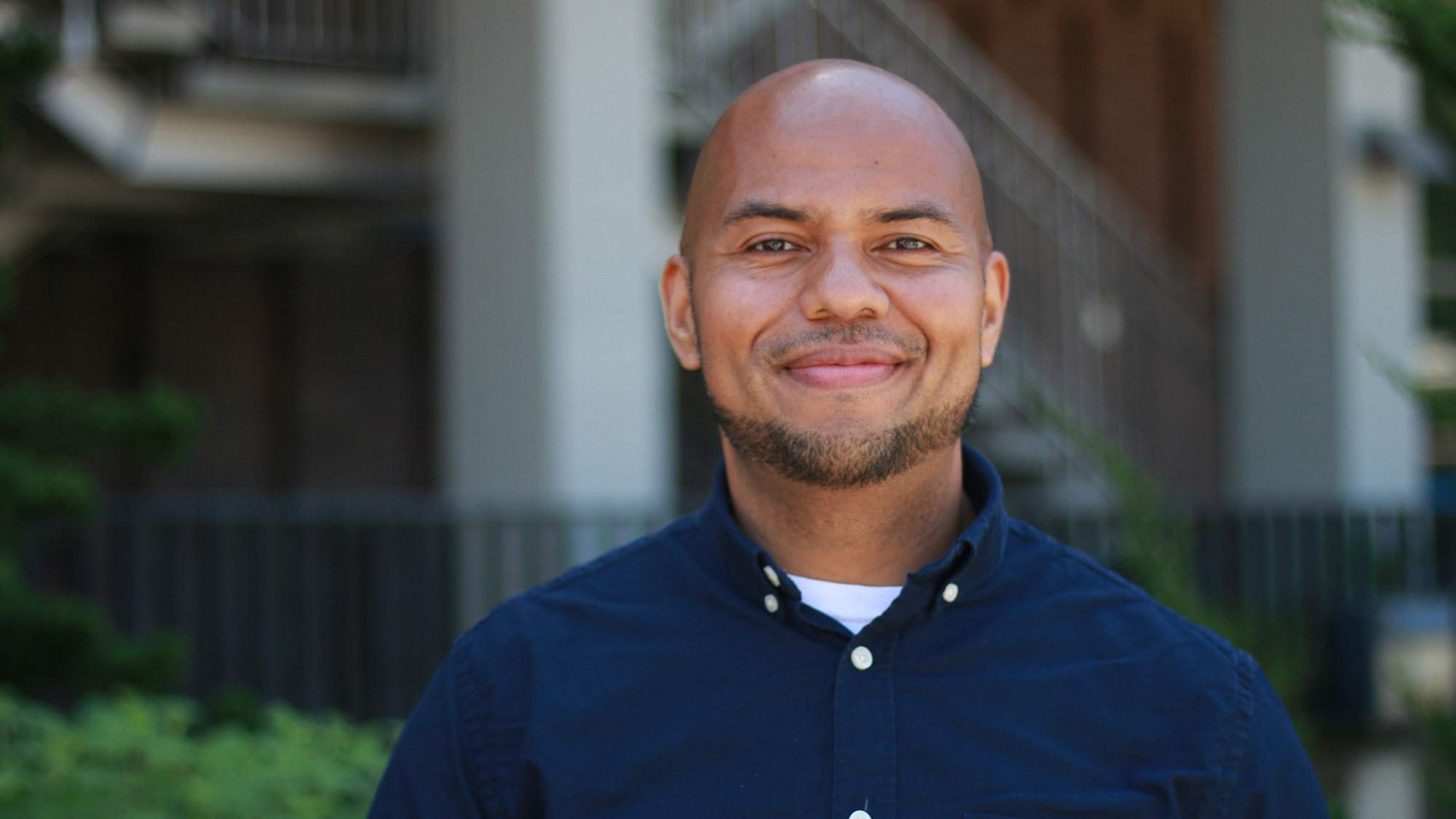
Courtesy of Student Parent Center
The Student Parent Center has a new space in Albany at University Village, which houses students who juggle raising families and attending school. The space will offer a supportive community with staff knowledgeable about resources, policies, services and strategies to help mothers and fathers succeed as both students and parents.
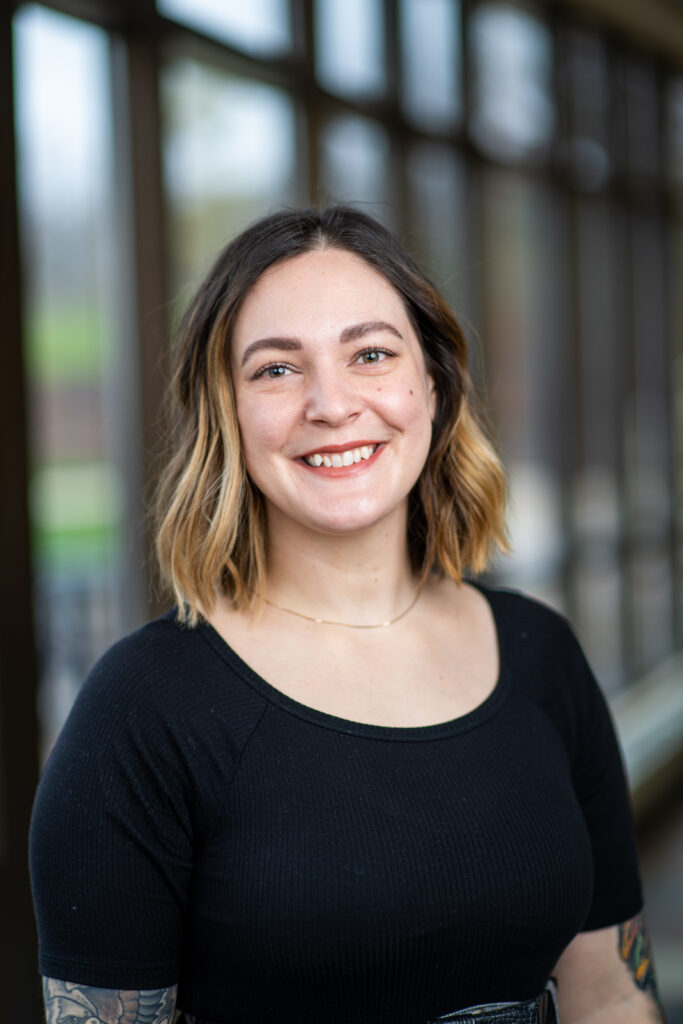
Courtesy of Cal Veteran Services Center
Tomie Lenear, director of the Student Parent Center, said University Village residents on campus can’t always access services at the center on Lower Sproul Plaza because they’re rushing to and from classes as they pick up and drop off their children at school and other activities.
Now, said Lenear, the University Village’s new student parent satellite facility, next to the Bear Pantry and the Residential Life trailers, will provide “another place for them to call home.” For the next two weeks, the facility will be open from 11 a.m. to 2 p.m.
Student veterans also have new programs this fall. To help them build social and professional connections on campus, they can join the Cal Veteran Services Center’s new alumni mentorship program. The program will introduce them to more than 60 veterans who are Berkeley alumni to build professional connections, share life experiences and take part in job readiness workshops to practice interviewing skills and create resumés.
The center also is piloting a career readiness program in which student veterans can be connected to professional career counseling, a variety of events and campus resources. Participants will receive a $250 gift card to use for professional development purposes.
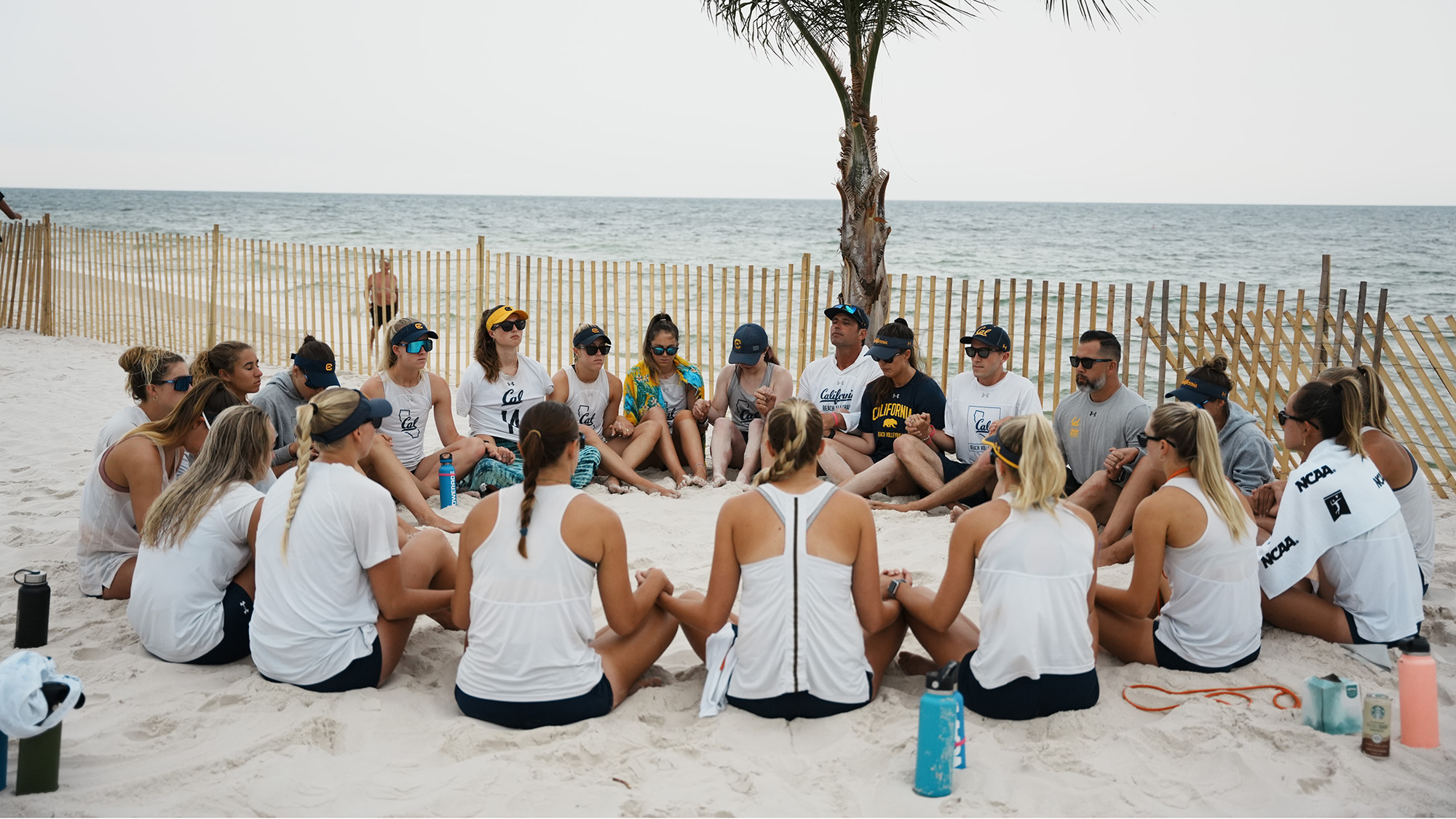
Courtesy of Cal Athletics
Help for student athletes’ unique pressures
At Cal Athletics, there are now three mental performance consultants, with plans for a fourth, to help student athletes better handle the unique pressures they experience, and Berkeley “is one of the leaders in this area,” said Jonathan Okanes, associate athletics director for communications. He credits the Cameron Institute for Student-Athlete Development and the resources it provides to optimize mental well-being.
“The need for this type of training has never been greater, with all the demands and pressures our student athletes and coaches face, especially at a public university that’s consistently ranked No. 1 in the world,” Okanes said. “The Cameron Institute helps support those aspects of their lives.”
The mental performance consultants focus on five key buckets — performance, mindset, team culture, leadership and well-being. They also have a weekly presence at team practices and occasionally travel with teams to competitions to support student athletes and coaches in real time.
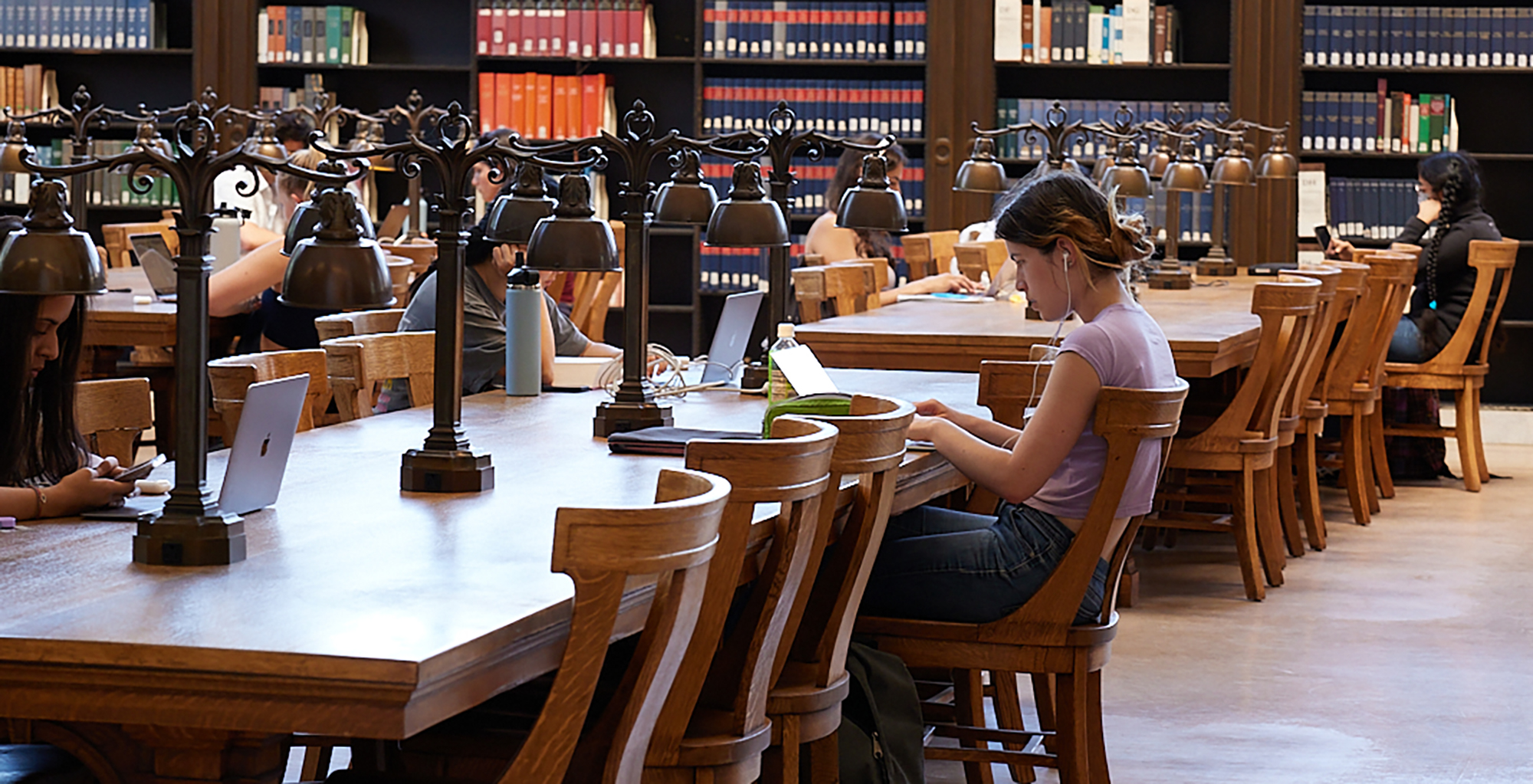
Jen Siska for UC Berkeley
Menstrual Equity Initiative
More bathrooms across campus this fall contain dispensers with free period products, like tampons, thanks to the student-led Menstrual Equity Pilot Program.
The program was launched last spring by the ASUC Menstrual Equity Commission, led by student Sana Desai, and UC Berkeley Facilities Services. Berkeley complies with a state law passed in 2021 requiring public colleges and universities to provide free menstrual products. But Desai said the products, initially available only at the Tang Center, should be in many convenient locations.
A fall 2021 Berkeley student survey found that 94% of menstruating students started their periods in a public setting or on campus, and 70% had to leave such a setting as a result, only to discover no menstrual products nearby.
Since May 10, the program has identified nearly 30 high-traffic bathrooms to install new dispensers with no-cost period products, said Michelle La, a campus operations support manager in Facilities Services, and 10 locations — including Dwinelle, Wheeler and Evans halls — already have brand new dispensers.
The program also aims to install three dispensers in every building: one each in a women’s, men’s and gender-inclusive bathroom.
“By providing free period products in these spaces,” said La, “we hope to further advance accessibility, inclusion and equity on our campus.”
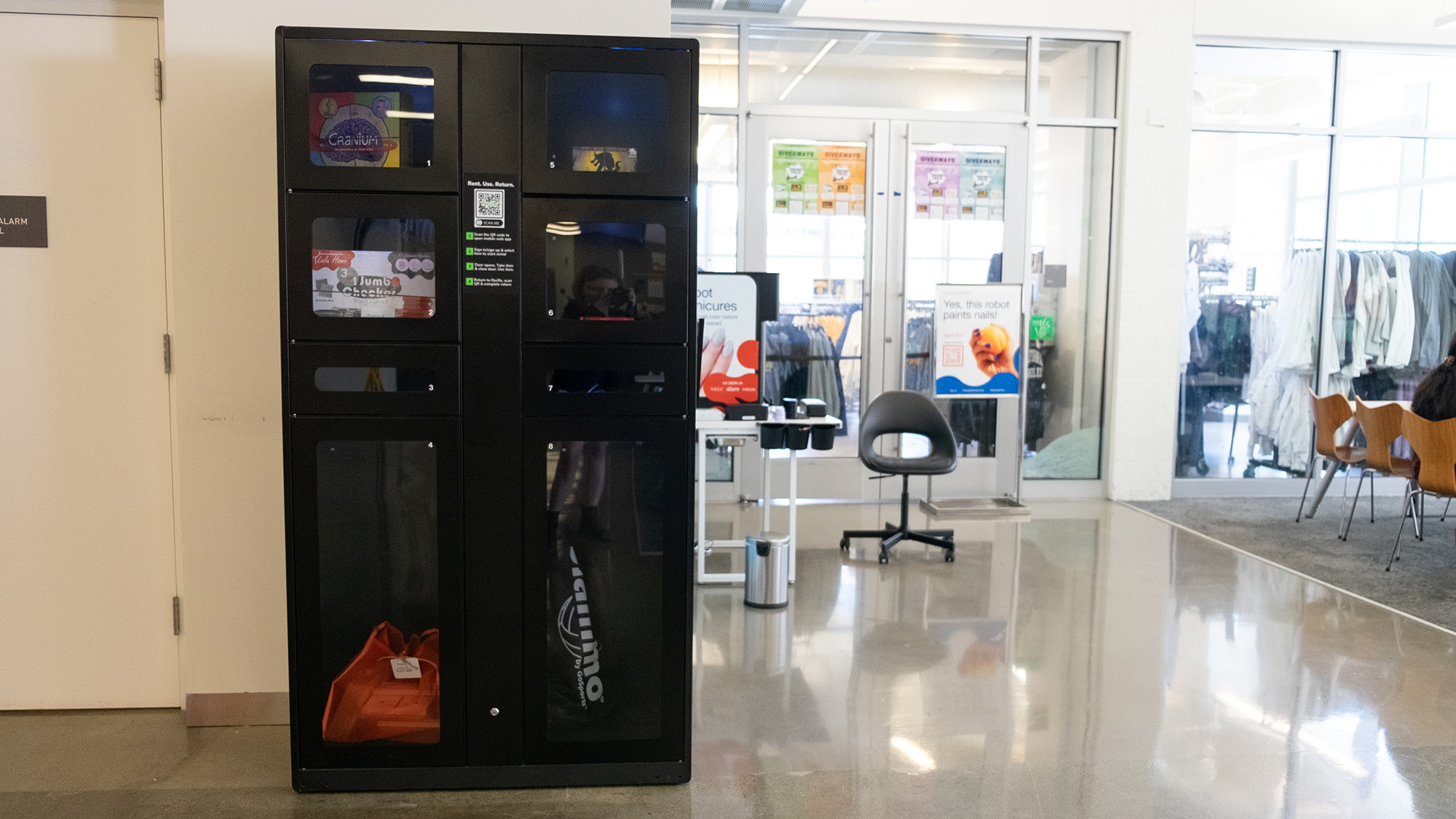
Sofia Liashcheva/UC Berkeley
Decompressing at the ASUC Student Union
Students looking to unwind from their studies will find new diversions at the ASUC Student Union. Three autonomous RecRe boxes, or towers — each has eight compartments with glass windows — allow students to view and select popular items they can borrow without charge, such as board games, charging cables for their devices, craft supplies and items for outdoor use, like a picnic basket.
A QR code on the tower can be scanned to see what’s available to rent, and students must create a RecRe account to obtain a rental. All rentals at the student union currently are set to a three-hour time limit, and when the time nears to return the item, students get an email reminder.
There are two towers on the first floor of the MLK Jr. Building and one on the second floor.
Ryan Adelman-Sessler, the student union’s business relations manager, added that he’s signed an agreement with Games of Berkeley, a store on Durant Avenue, that will stock the towers with a featured “game of the month.”
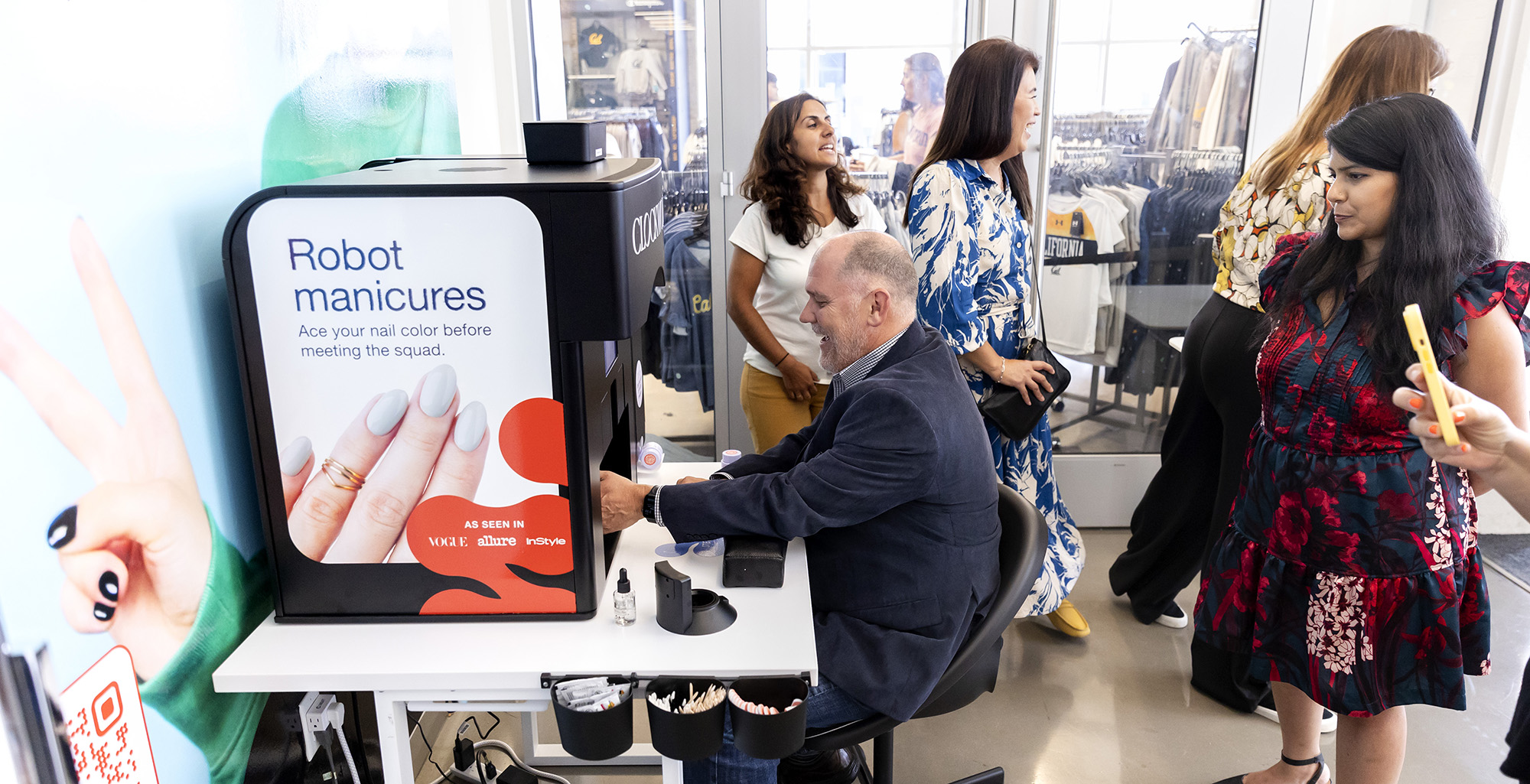
Brittany Hosea-Small for UC Berkeley
Also new on the MLK Jr. Building’s second floor is a robot that gives $10 mini manicures in 10 minutes. It’s the creation of Clockwork, a small startup out of San Francisco that specializes in express beauty services.
“It’s like a big box on a table,” said Adelman-Sessler, “and you sit and interact with the robot. A door pops open, and you put in the polish you’ve selected, then place your hand on a rest, and pictures are taken of each of your nails.” When you say, “Ready,” the robot starts painting.
“It’s a fantastic service,” he said. “It’s not a replacement for a salon visit, but it’s an alternative to painting your nails at home. And if during the service you bump a finger and it doesn’t look right, you can redo it.”
In the Eshleman Hall lobby, a food location that’s been vacant since the COVID-19 pandemic has reopened as Goldie’s West, a sister shop to Goldie’s Coffee in the MLK Jr. Building. It will carry “exotic snacks from all over the world,” said Adelman-Sessler, including octopus-flavored potato chips; cheese, chilé and lime munchies; and melon candy.
“The student union is the campus living room,” he said, “and we want students who visit our spaces to take a break from academics and enjoy themselves a bit. … We plan on bringing even more things to the student union in the future to keep moving our buildings in the direction of being an oasis from the rigors of being a Berkeley student.”
Ivan Natividad contributed to this story.